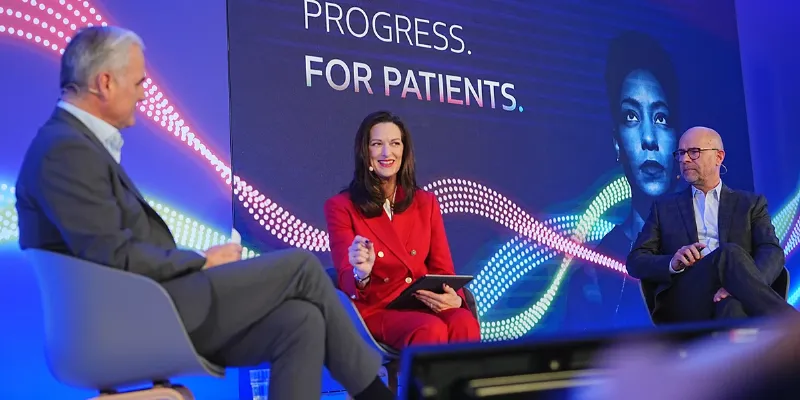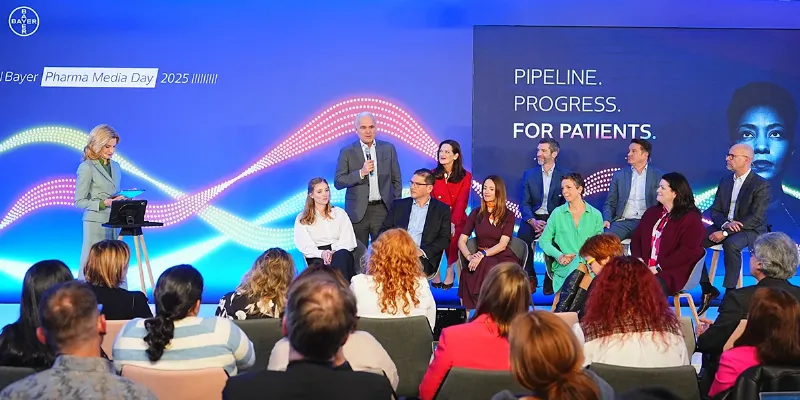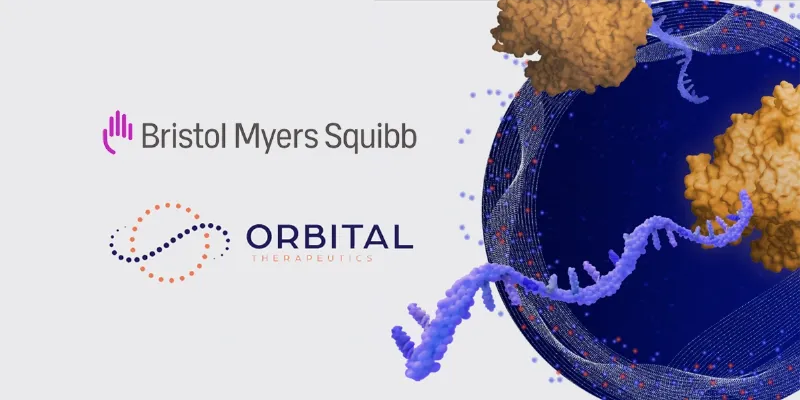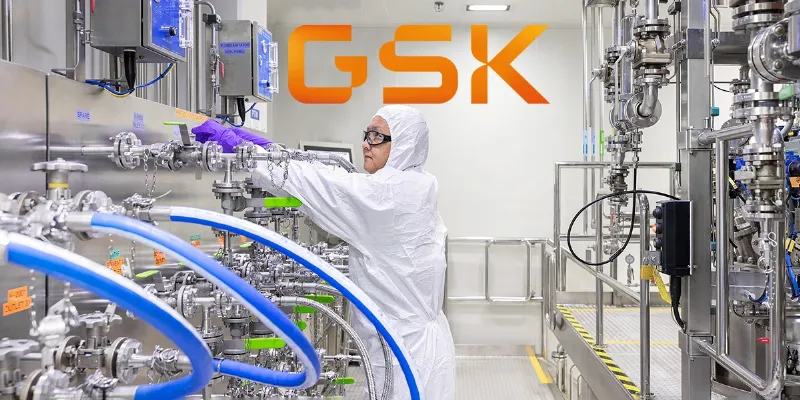Bayer Poised for Landmark Year with Blockbuster Treatment Advances Across Key Diseases

4 April 2025
Bayer Pharmaceuticals announced a landmark year for 2025, forecasting breakthroughs in several critical medical areas—including oncology, cardiology, women’s health, and neurology—driven by advancements in its drug development pipeline.
During its annual Pharma Media Day held in Berlin, Germany, Bayer executives detailed impressive advancements across multiple therapeutic fields, driven by a robust strategy focused on innovation and unmet medical needs. The company reported nine successful Phase III trials in 2024 and advanced key innovations in cell and gene therapies—particularly for Parkinson’s disease—as well as in treatments for prostate cancer, heart failure, transthyretin amyloid cardiomyopathy, and menopause.
Stefan Oelrich, Member of the Board of Management at Bayer AG and President of Bayer’s Pharmaceuticals Division, highlighted the transformative impact of these advancements. “Our growth strategy is on track and delivering significant value. This year, we are bringing a number of groundbreaking products with blockbuster potential to market,” Oelrich stated.
One key launch planned for 2025 is an innovative therapy for transthyretin amyloid cardiomyopathy (ATTR-CM) in Europe, addressing a severe, progressive condition that leads to debilitating heart failure. Additionally, Bayer anticipates the introduction of a novel treatment targeting heart failure patients with preserved ejection fraction (HFpEF)—characterized by a left ventricular ejection fraction of 40% or greater. This widespread form of heart failure currently lacks effective therapies, highlighting Bayer’s role in filling critical treatment gaps.
"We are shaping a new era of medicine, confident that we can not only transform patient care through breakthrough innovation and a robust product portfolio, but also by accelerating patient access to new medicines. With every new development, we are getting one step closer to realizing our vision to treat the untreatable, cure disease and offer hope,” said Christine Roth, Executive Vice President, and Member of the Pharmaceuticals Leadership Team at Bayer. “During Pharma Media Day, we highlighted key advancements... We also anticipate regulatory approval for a promising oncology treatment option in 2025, reinforcing our commitment to innovation in healthcare.”
Delivering significant growth in oncology
Bayer is enhancing its oncology portfolio, especially in prostate cancer treatment, where it already holds a prominent position. The company is launching a new therapy for metastatic hormone-sensitive prostate cancer, significantly expanding therapeutic options for patients.
Additionally, Bayer’s targeted radionuclide therapy (TRT) pipeline continues to evolve, leveraging highly precise targeted alpha therapies. These cutting-edge treatments incorporate radioactive isotopes such as actinium-225 to selectively target and destroy cancer cells in metastatic castration-resistant prostate cancer (mCRPC), a particularly challenging cancer subtype.
Dr. Christian Rommel, Member of the Executive Committee of Bayer’s Pharmaceuticals Division and Head of Research and Development, underscored the strategic focus driving Bayer’s recent successes. “Our strategic transformation has yielded significant progress in R&D to deliver a competitively structured and differentiated pipeline. In 2024 our late-stage Phase III trials have delivered positive outcomes, so it’s clear we are seeing the impact of our enhanced capabilities and clarity on our strategic priorities. Our renewed early pipeline positions us for long-term growth and allows us to progress targeted treatments that promise to significantly improve patient outcomes,” Rommel noted.
Pioneering progress in women’s health
In women's health, Bayer is set to introduce a hormone-free treatment for menopausal women experiencing moderate to severe vasomotor symptoms, including hot flashes, sleep disturbances, and diminished quality of life. Clinical trials demonstrated significant reductions in symptom frequency and severity, offering hope to millions of women globally. Regulatory submissions are currently under review, with anticipated approvals imminent in both the US and Europe.
Neurology represents another strategic focus area for Bayer. In collaboration with its subsidiary BlueRock Therapeutics, Bayer is advancing a pioneering cell therapy designed to address Parkinson’s disease.
This therapy involves the surgical implantation of dopamine-producing nerve cells directly into the patient's brain, a promising method that secured the FDA’s Regenerative Medicine Advanced Therapy (RMAT) designation after encouraging Phase I results. This groundbreaking treatment is now advancing into a Phase III clinical trial.
Developing the next generation of cardiovascular therapies
Building on its strong late-stage projects, Bayer has set a clear directive towards precision cardiology, exploring innovative approaches across a diverse range of modalities. By doing so, the company aims to push the boundaries of innovation for patients with cardiovascular diseases with high unmet needs and even potentially reverse life-altering conditions.
Complementing in-house expertise with external collaborations remains a vital part of Bayer’s strategy to expand its R&D expertise and develop cardiovascular therapies, with the goal of addressing high unmet medical needs.

Through AskBio, a wholly owned subsidiary of Bayer, Bayer is developing a gene therapy as a potential new approach for treating congestive heart failure. Following its acquisition, Bayer gained access to AskBio’s industry-leading gene therapy platform with demonstrated applicability and world-class manufacturing facilities and is already making progress with its Phase II assets.
Leadership in cell therapy and gene therapy
Bayer and BlueRock Therapeutics, a wholly owned subsidiary of Bayer are developing an investigational cell therapy based on the surgical implantation of dopamine-generating nerve cell precursors into the brain. The candidate is advancing directly to Phase III clinical development following positive Phase I data. The FDA has granted a Regenerative Medicine Advanced Therapy (RMAT) designation for its innovative potential in treating Parkinson's disease.
Through AskBio Bayer is developing an investigational adeno-associated viral (AAV)-based gene therapy for Parkinson’s disease that delivers the human glial cell line-derived neurotrophic factor (GDNF) transgene to the brain to potentially protect dopamine-generating neurons. The candidate is advancing in Phase II, with the randomization of participants in the clinical trial. It has already received FDA Fast Track and RMAT designation, as well as UK Medicines and Healthcare products Regulatory Agency (MHRA) Innovation Passport designations, highlighting its potential to address significant unmet medical needs.
Six products with blockbuster potential
Nubeqa™ (darolutamide): Bayer is set to launch a third indication of Nubeqa in 2025, supported by strong data from the ARANOTE trial, which investigated the efficacy and safety of darolutamide and androgen deprivation therapy (ADT) compared to placebo with ADT in patients with metastatic hormone sensitive prostate cancer (mHSPC). Nubeqa is already approved for use in combination with androgen deprivation therapy (ADT) and docetaxel for metastatic hormone-sensitive prostate cancer (mHSPC). Additionally, it is approved in combination with ADT for the treatment of patients with non-metastatic castration-resistant prostate cancer (nmCRPC) who are at high risk of developing metastatic disease.
Kerendia™ (finerenone): Based on the positive data from the FINEARTS-HF Phase III trial, where finerenone showcased a statistically significant improvement in cardiovascular outcomes in patients with heart failure and an LVEF of 40% or greater, applications for this indication have been submitted in the U.S., EU, China, and Japan. Finerenone is the only drug targeting the mineralocorticoid receptor (MR) pathway to demonstrate cardiovascular benefits in a Phase III study in patients with heart failure with an LVEF of ≥40%. Finerenone is already approved for the treatment of adult patients with chronic kidney disease (CKD) associated with type 2 diabetes (T2D).
Beyonttra™ (acoramidis): The European Commission granted marketing authorization for acoramidis, branded as Beyonttra, in February this year, for the treatment of wild-type or variant transthyretin amyloidosis in adult patients with cardiomyopathy (ATTR-CM). ATTR-CM is a progressive and fatal disease that leads to heart failure due to infiltrative, restrictive cardiomyopathy. Patients are at continuous risk of disease progression from ongoing amyloid deposition in the heart. Beyonttra is a selective small molecule, orally administered near-complete (≥90%) transthyretin (TTR) stabilizer. A successful launch has already begun in Europe, starting with Germany.
Elinzanetant: Across the three Phase III trials (OASIS-1,2,3), elinzanetant has successfully shown its efficacy and safety in reducing moderate to severe vasomotor symptoms (VMS, also known as hot flashes) associated with menopause. In January this year, the Phase III OASIS 4 trial achieved a positive outcome by meeting its primary endpoint, demonstrating the effectiveness of elinzanetant in treating moderate to severe VMS in women undergoing adjuvant endocrine therapy for breast cancer or those at high risk for the disease. In all four Phase III trials, participants also experienced improvements in sleep disturbances and menopause related quality of life. With regulatory submissions under review globally, Bayer anticipates a potential launch in the U.S. and Europe this year.
Eylea™ 8 mg (aflibercept 8 mg): In ophthalmology, Eylea 8 mg, with its long treatment intervals, has the potential to become a new standard of care in its launched indications for the treatment of neovascular (wet) age-related macular degeneration (nAMD) and diabetic macular edema (DME). In December 2024, the global Phase III QUASAR study with aflibercept 8 mg demonstrated non-inferior visual acuity gains, when given less frequently, compared to the current standard therapy, Eylea 2 mg given monthly, in patients with macular edema following retinal vein occlusion (RVO), including central, branch, and hemi-retinal vein occlusion. Detailed results will be submitted to regulatory authorities worldwide.
Asundexian: A selective oral FXIa inhibitor, is currently under investigation as a potential new antithrombotic therapy for preventing recurrent ischemic stroke in patients on standard antiplatelet therapy. The mechanism of FXIa inhibition is hypothesized to uncouple stroke prevention from risk of bleeding. The OCEANIC-STROKE Phase III study, investigating stroke prevention after non-cardioembolic ischemic stroke or high-risk transient ischemic attack in patients on standard antiplatelet therapy, is progressing well, with planned completion later this year. Bayer previously received U.S. FDA fast track designation for this indication.
New contrast agent in Radiology
Bayer's Radiology division offers a comprehensive portfolio of contrast agents and has significantly advanced its innovative pipeline for magnetic resonance imaging (MRI). The Phase III QUANTI study program investigating gadolinium-based MRI contrast agent gadoquatrane across a broad range of potential indications in pediatric and adult patients successfully met the primary and all secondary endpoints in patients using a 60% lower gadolinium dose compared to trial comparators. The comparison group received macrocyclic gadolinium-based contrast agents at a dosage of 0.1 mmol Gd/kg body weight. A reduced gadolinium dose could be especially valuable for patients in need for repeat contrast-enhanced MRI examinations as well as vulnerable populations such as pediatric patients. Regulatory submissions to health authorities worldwide are planned soon.











Comments
No Comments Yet!